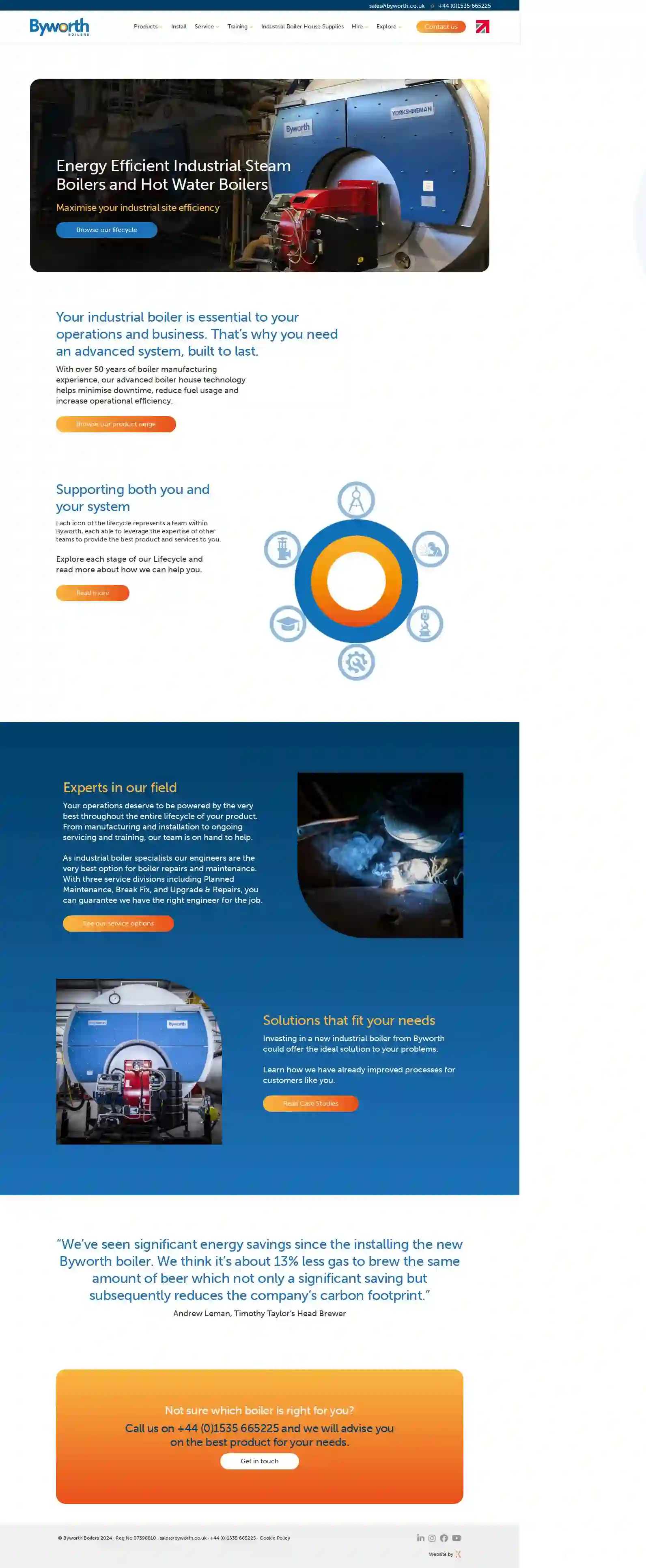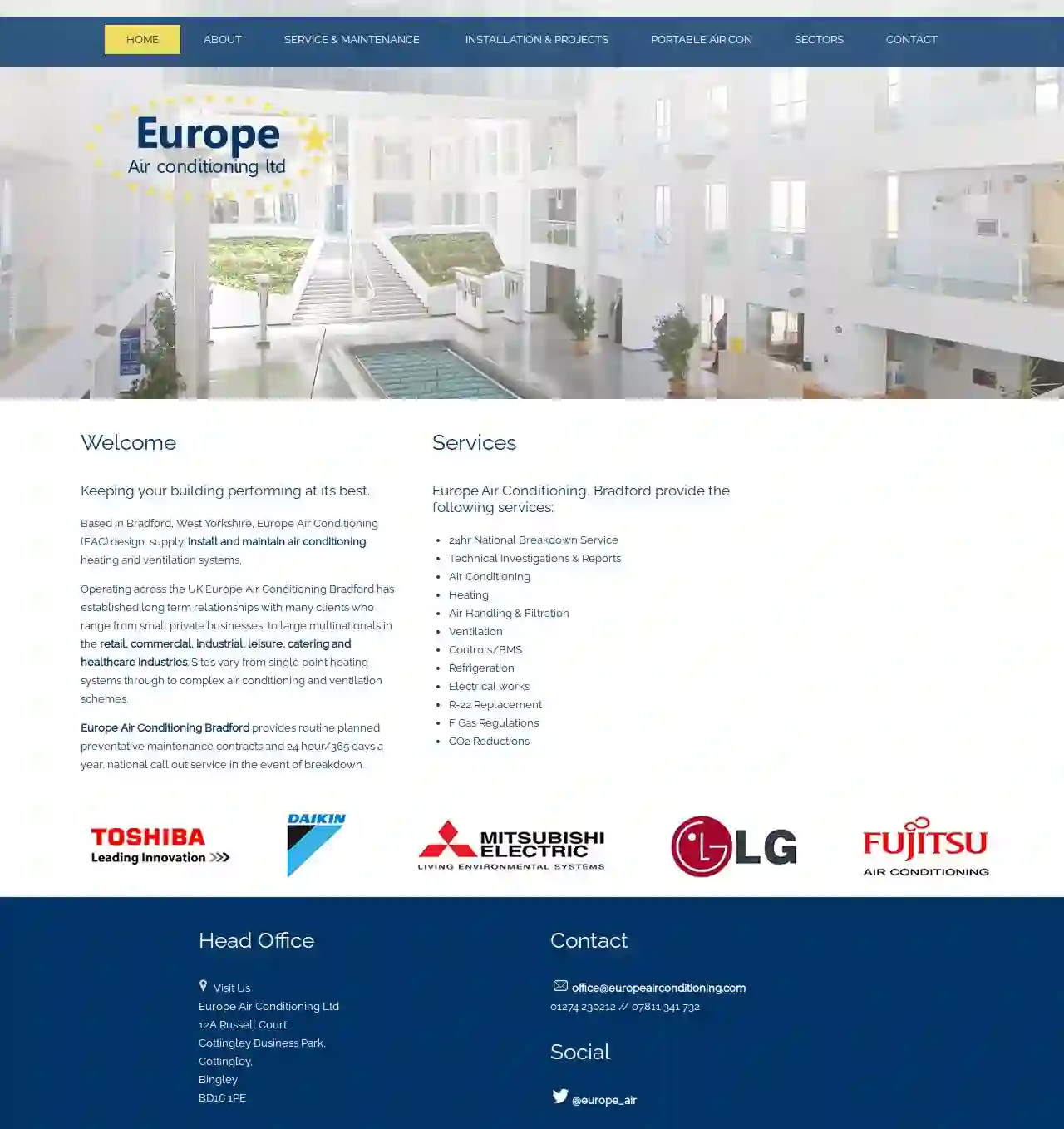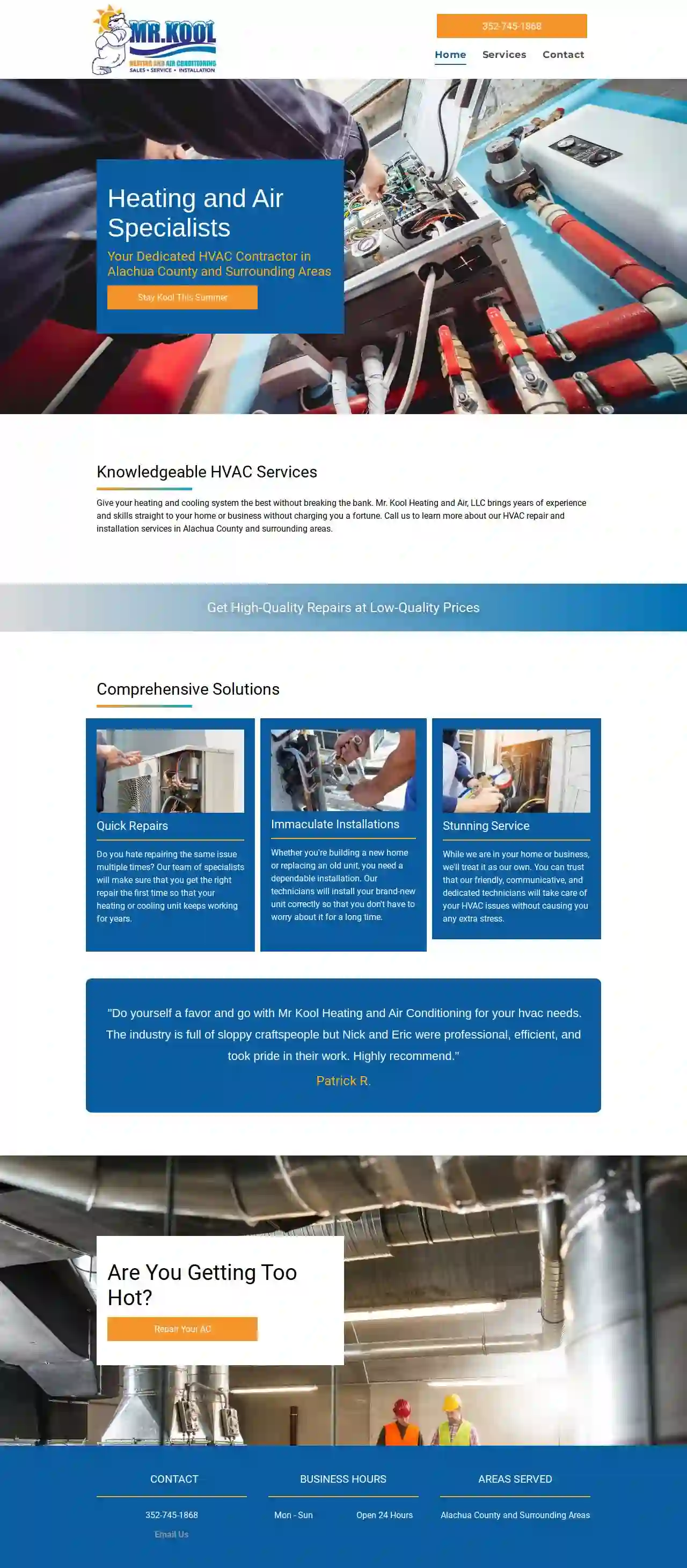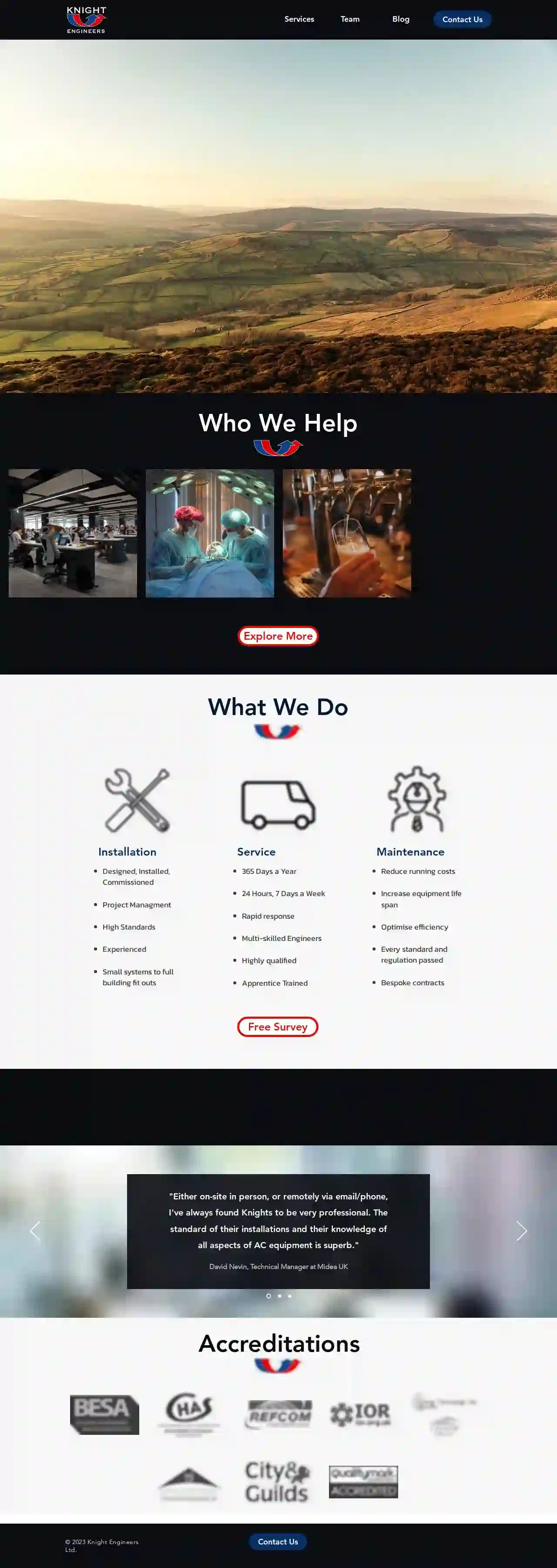Emergency HVAC Burley in Wharfedale
Best 24/7 HVAC Repair in Burley in Wharfedale
Get multiple Emergency Furnace Repair quotes for your project today! Compare profiles, reviews, accreditations, portfolio, etc... and choose the best offer.

PJ MAC HVAC Service & Repair
517 reviewsDrexel Hill, PA, 642 Harper Ave, 19026, GBPJ MAC HVAC Air Duct Cleaning is a family-owned business that has been serving Malvern, PA and surrounding areas for over 32 years. We offer a range of services including air duct cleaning, dryer vent cleaning, HVAC repair and replacement, and more. Our team of experienced technicians is dedicated to providing prompt, reliable, and affordable service to our customers. We pride ourselves on our commitment to integrity, honesty, and quality workmanship. Whether you're in need of emergency service or routine maintenance, we're here to help. Contact us today to schedule an appointment or request a free quote.
- Services
- Why Us?
- Our Team
- Gallery
Get Quote
Byworth Boiler Hire Limited
57 reviewsParkwood Street, N/A, Parkwood Boiler Works, Keighley, BD21 4NW, GBByworth Boilers is a leading manufacturer of energy-efficient industrial steam and hot water boilers, with over 50 years of experience in the industry. We pride ourselves on providing advanced boiler house technology that minimizes downtime, reduces fuel consumption, and increases operational efficiency for our clients. Our team of expert engineers works closely with customers to design, manufacture, install, service, and maintain boilers that meet their specific needs. We offer a comprehensive range of products and services, including steam boiler solutions, hot water boiler solutions, industrial boiler ancillaries, packaged boiler houses, and the Unity steam boiler control system. Byworth Boilers is committed to supporting our customers throughout the entire lifecycle of their boiler, from initial design to ongoing maintenance. We also offer training programs to ensure that our clients' operators have the knowledge and skills to operate their boilers safely and efficiently. Our dedication to quality, innovation, and customer service has made Byworth Boilers a trusted partner for industrial businesses worldwide.
- Services
- Why Us?
- Accreditations
- Our Team
- Testimonials
- Gallery
Get Quote
Europe Air Conditioning
4.911 reviewsCottingley Business Park, Cottingley, 12A Russell Court, Bingley, BD16 1PE, GBEurope Air Conditioning (EAC) is a privately owned business based in Bingley, Bradford, West Yorkshire. With many years of experience in air conditioning design, maintenance, and building services, EAC recently celebrated its 10th anniversary. They employ highly trained and professionally qualified engineers, all of whom are CRB approved. EAC is committed to providing a first-class service, supplying top-quality equipment and offering "Best Value" solutions for all customer needs. They operate nationwide, with easy access to Leeds, Halifax, Skipton, Huddersfield, and Wakefield. EAC is dedicated to environmental responsibility, maximizing the effectiveness of their air conditioning systems, reducing energy costs, and providing long-term, sustainable solutions for their clients. They hold a Waste Carriers License and a Building Premises Code, allowing them to safely remove and dispose of hazardous waste from client properties. EAC strives to improve the working environment for staff and create a more enjoyable experience for visitors to offices and shops.
- Services
- Why Us?
- Gallery
Get Quote
Aero Heating Cooling & Appliances Service Bradford
518 reviewsBradford, GBAero Heating Cooling is a family-owned and operated company, keeping your best interests as our focus since 2000. We provide furnace, air conditioner repair and installation services in Bradford, ON. Our experienced and knowledgeable team specializes in providing fast and reliable air conditioning repair solutions. We've serviced every make, model, and type of cooling system, and we know what works. Our maintenance strategies are the culmination of 20 years of innovation, determination, and successful outcomes across York Region and GTA. We're here for our friends and neighbours in Bradford and greater Toronto and the surrounding area 24 hours, championing your best interests.
- Services
- Why Us?
- Gallery
Get Quote
Mansfield Pollard & Co Ltd
4.124 reviewsLondon, SW1A 1BS, 1 Victoria Street, GBMansfield Pollard is a leading provider of air handling and air management solutions, with over 158 years of experience. We have a strong reputation for delivering high-quality, bespoke solutions that meet the specific needs of our clients. Our team of experts has a deep understanding of the importance of indoor air quality and works closely with clients to design and install systems that meet their unique requirements. With a range of products and services, including air handling units, acoustic control, and UV-C air sterilisation, we are well-equipped to handle even the most complex projects. Our commitment to quality, innovation, and customer-focused solutions has earned us a reputation as a trusted partner for many of the world's leading organisations.
- Services
- Why Us?
- Accreditations
- Gallery
Get Quote
H2Heat Ltd
519 reviewsEast Morton, GBWe have over 25 years’ experience providing professional heating & plumbing services across East Morton and surrounding areas. I offer you the highest quality workmanship and services. My reputation has been developed through hard work and reliability which is why I am one of the area’s preferred choices for heating services, for more information please get in touch.
- Services
- Why Us?
- Accreditations
- Our Team
- Testimonials
- Gallery
Get Quote
Pinder Cooling Ltd
4.950 reviews62 Tong Street, The Enterprise Hub, Bradford, BD4 9LX, GBPinder Cooling & Heating is a commercial refrigeration and air conditioning contractor that provides expert installation and maintenance of commercial AC and refrigeration systems. With a focus on providing advice you can trust, products that are right, and a service you can rely on, Pinder Cooling & Heating is dedicated to keeping indoor spaces and products at the right temperature. The company is registered as a limited company in England and Wales under company number 10291440 and has its registered office at The Enterprise Hub, 62 Tong Street, Bradford, West Yorkshire, BD4 9LX.
- Services
- Why Us?
- Testimonials
- Gallery
Get Quote
Mr. Kool Heating and Air, LLC
540 reviewsAlachua, GBMr. Kool Heating and Air, LLC is a dedicated HVAC contractor serving Alachua County and surrounding areas. With years of experience and skills, we bring high-quality repairs and installations to your home or business without breaking the bank. Our team of specialists is knowledgeable and friendly, providing comprehensive solutions for all your HVAC needs. Whether you need a new system or a repair, we're available 24/7 to take care of it the first time. We're proud of our reputation for being professional, on-time, and reasonably priced, with a focus on customer satisfaction.
- Services
- Why Us?
- Our Team
- Testimonials
- Gallery
Get Quote
ACS Air Conditioning Services
532 reviewsHaworth, Keighley, 33 Emmott Farm Fold, BD22 8BQ, GBWe are ACS, your partner from design to installation in commercial & domestic HVAC projects across Yorkshire and the north. We specialise in the design, build and installation of air conditioning systems across Yorkshire and Lancashire. Our prices are guaranteed to be competitive and our service is always top notch. Whether you're a contractor seeking a reliable and experienced partner, or a business or homeowner looking for an efficient solution to heating and cooling, we're ready for your project.
- Services
- Why Us?
- Accreditations
- Our Team
- Testimonials
- Gallery
Get Quote
Knight Engineers Ltd
511 reviews100-102, Aston Expressway, Unit 10, The Business Centre, Birmingham, B16 8AA, GBKnight Engineers are Air Conditioning & Refrigeration Specialists, exploring new technology and ideas whilst keeping good old fashioned values at heart. We offer a comprehensive range of services, from installation and maintenance to surveys and testing. Our team of highly qualified and experienced engineers are committed to providing our clients with the highest quality service, 24/7, 365 days a year. We pride ourselves on our rapid response times and our ability to meet the needs of our clients, no matter how big or small the project. We have been established since 2007 and have over 1000 happy customers. Our accreditations ensure that we meet the highest industry standards. Whether you need a new system installed, your existing system maintained, or a survey carried out, Knight Engineers is the company for you.
- Services
- Why Us?
- Accreditations
- Testimonials
- Gallery
Get Quote
Over 12,692+ HVAC Companies on our platform
Our HVAC contractors operate in Burley in Wharfedale and surroundings!
HVACCompaniesHub has curated and vetted the Best HVAC Companies near Burley in Wharfedale. Find a top & trustworthy pro today.
Frequently Asked Questions About Emergency HVAC Services
- No heat in freezing weather
- No air conditioning in extreme heat
- Gas leaks
- Carbon monoxide leaks
- Frozen pipes
- Water leaks from HVAC equipment
- Electrical problems with your system
What's the difference between a single-stage and two-stage furnace?
What is considered an HVAC emergency?
What is a humidifier, and should I use one with my HVAC system?
How long does it take for an emergency HVAC technician to arrive?
What's the difference between a single-stage and two-stage furnace?
What is considered an HVAC emergency?
- No heat in freezing weather
- No air conditioning in extreme heat
- Gas leaks
- Carbon monoxide leaks
- Frozen pipes
- Water leaks from HVAC equipment
- Electrical problems with your system